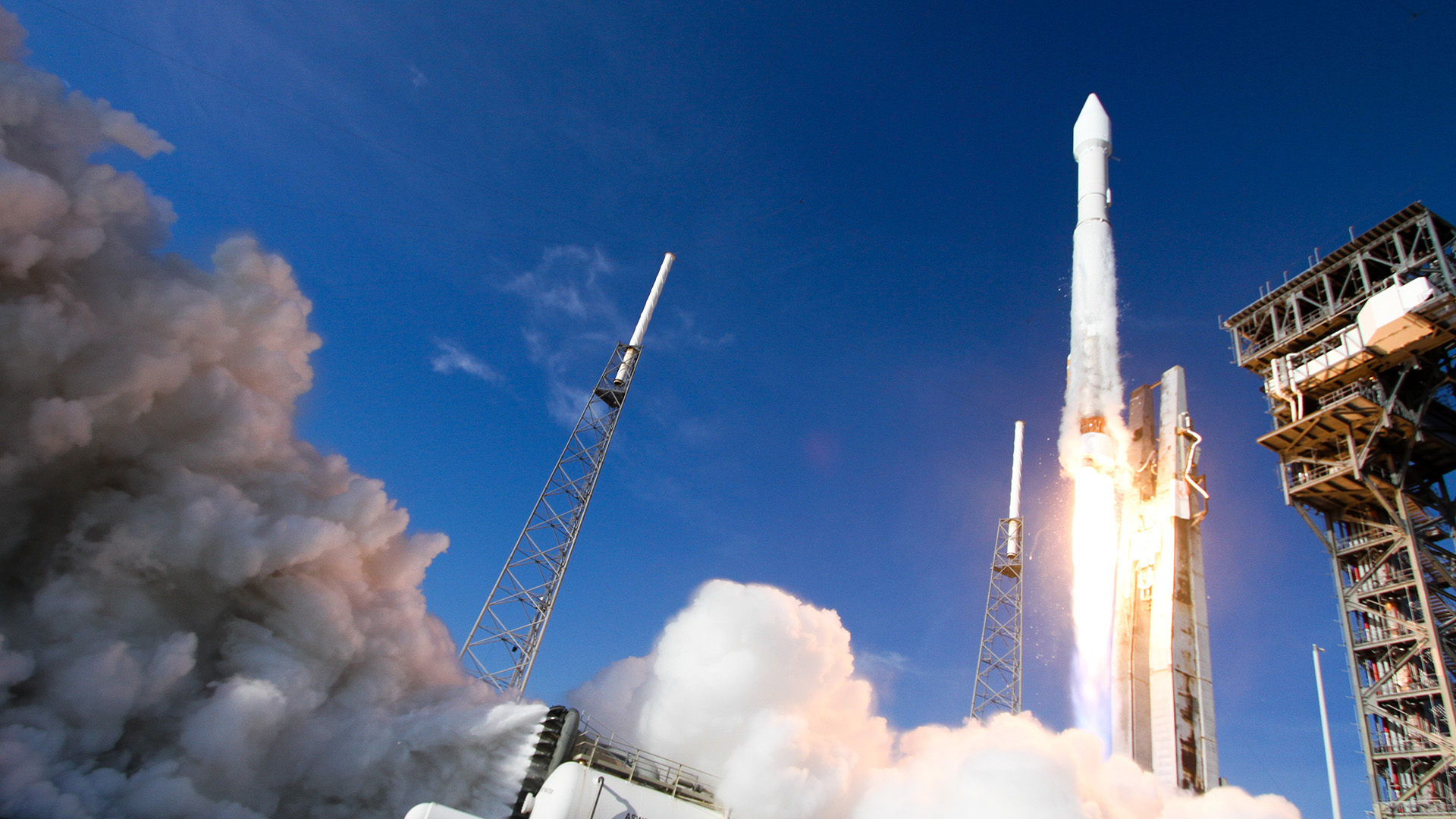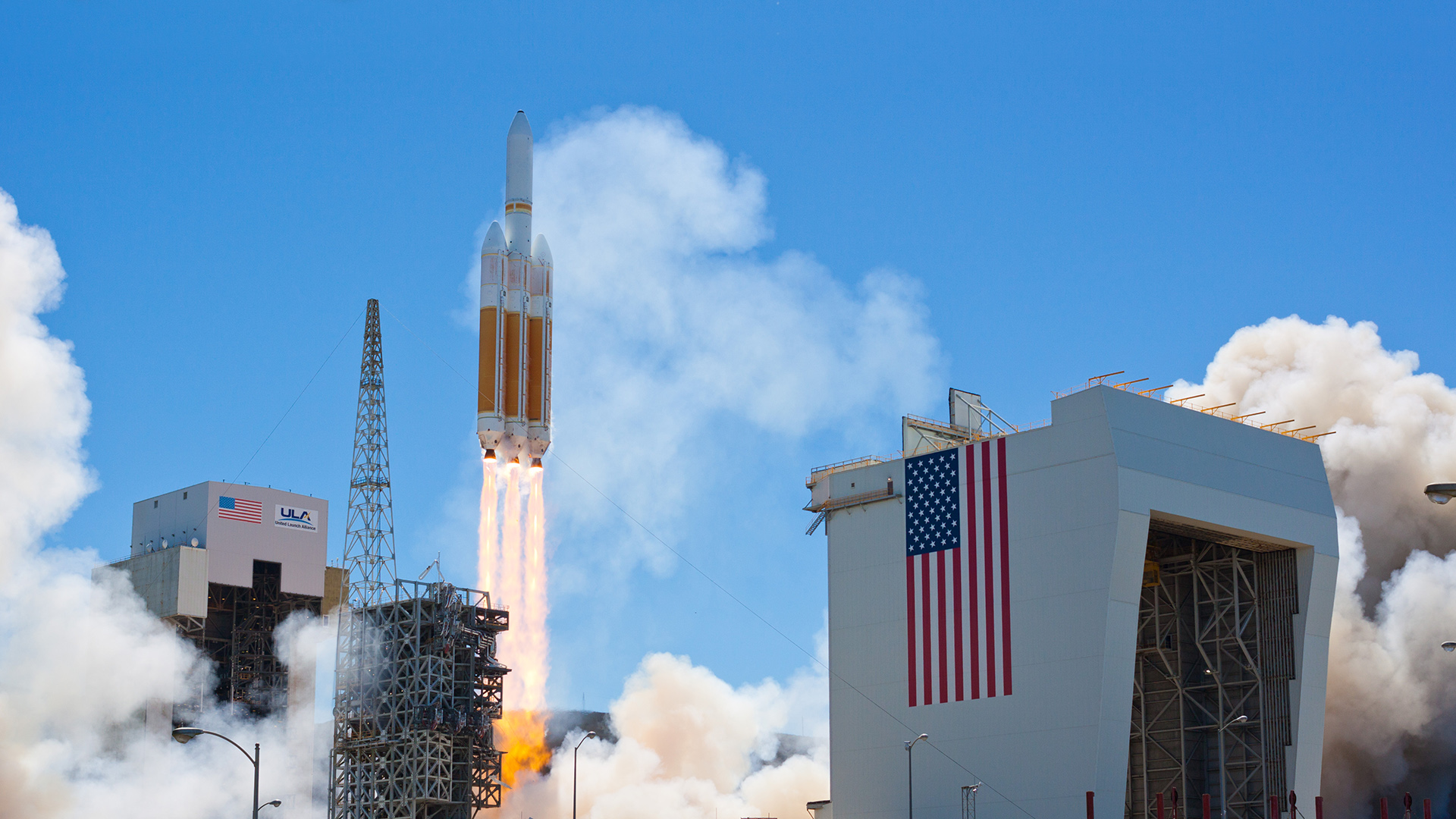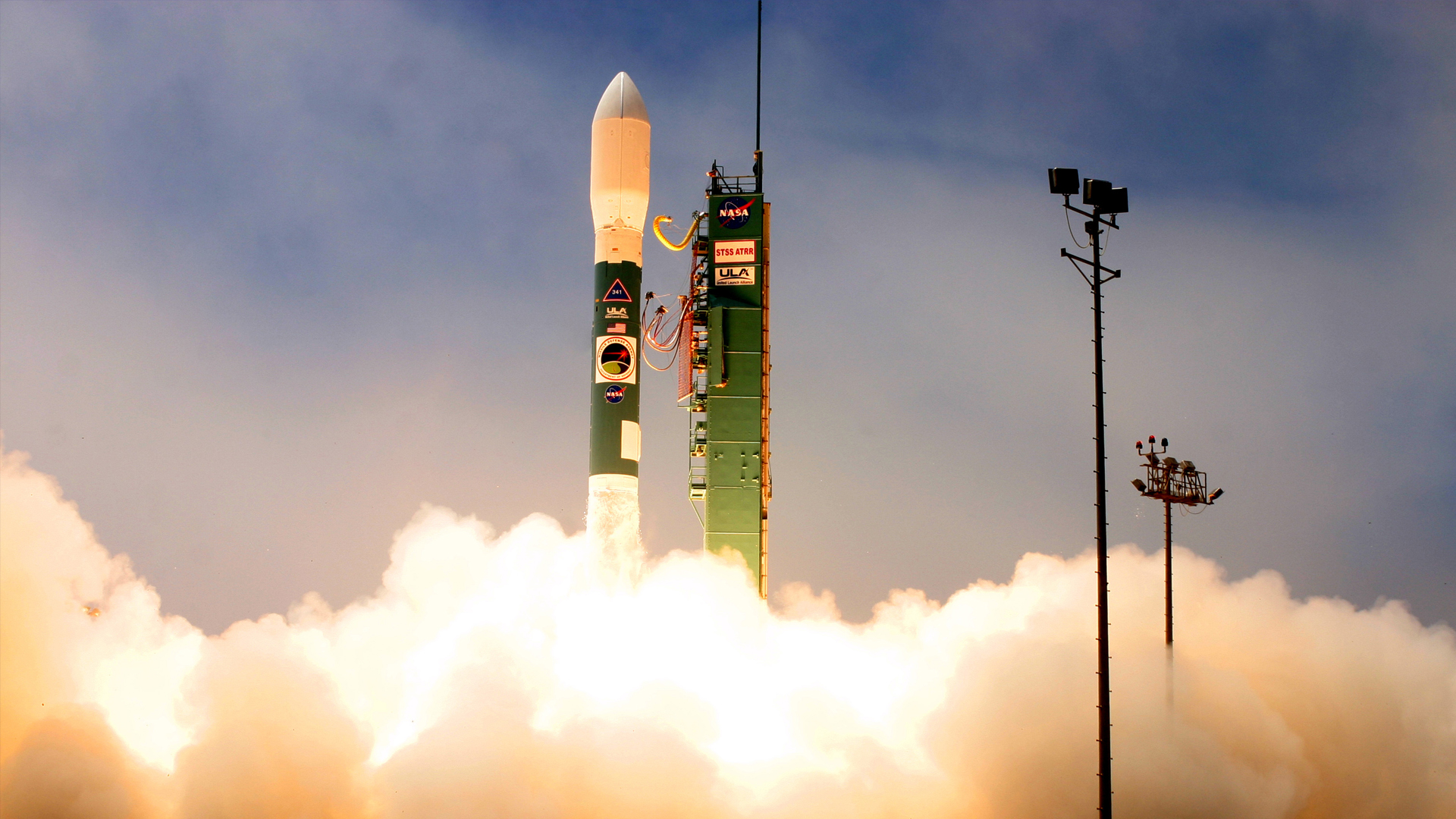Missions
Next LaunchUnited Launch Alliance Successfully Launches SBIRS GEO Flight 4 Mission for the U.S. Air Force
Two launches from two coasts in just one week.
Cape Canaveral Air Force Station, Fla., (Jan. 19, 2018) – A United Launch Alliance (ULA) Atlas V rocket carrying the Space Based Infrared System (SBIRS) GEO Flight 4 mission lifted off from Space Launch Complex-41 on Jan. 19 at 7:48 p.m. EST. SBIRS is considered one of the nation’s highest priority space programs, and is designed to provide global, persistent, infrared surveillance capabilities to meet 21st century demands.
“Meeting the challenge of launching two critical national security missions from opposite coasts within a week, the entire ULA team once again demonstrated its unwavering dedication to 100% mission success,” said Laura Maginnis, ULA vice president of Government Satellite Launch. “Thank you to our U.S. Air Force and industry teammates for their outstanding partnership in successfully delivering SBIRS to orbit today.”
This mission was launched aboard an Atlas V Evolved Expendable Launch Vehicle (EELV) 411 configuration vehicle, which includes a 4-meter Payload Fairing (PLF). The Atlas booster for this mission was powered by the RD AMROSS RD-180 engine. Aerojet Rocketdyne provided the AJ-60A solid rocket booster (SRB) and RL10C-1 engine for the Centaur upper stage.
This is the 75th launch of the Atlas V rocket, ULA’s 2nd launch in 2018 and the 125th successful launch since the company was formed in December 2006.
The EELV program was established by the U.S. Air Force to provide assured access to space for Department of Defense and other government payloads. The commercially developed EELV program supports the full range of government mission requirements, while delivering on schedule and providing significant cost savings over the legacy launch systems.
ULA's next launch is the GOES-S mission for NASA and NOAA on an Atlas V rocket.The launch is scheduled for March 1 from Space Launch Complex-41 at Cape Canaveral Air Force Station, Florida.
With more than a century of combined heritage, United Launch Alliance is the Nation’s most experienced and reliable launch service provider. ULA has successfully delivered more than 120 satellites to orbit that aid meteorologists in tracking severe weather, unlock the mysteries of our solar system, provide critical capabilities for troops in the field and enable personal device-based GPS navigation.
For more information on ULA, visit the ULA website at www.ulalaunch.com, or call the ULA Launch Hotline at 1-877-ULA-4321 (852-4321). Join the conversation atwww.facebook.com/ulalaunch, twitter.com/ulalaunch and instagram.com/ulalaunch.








